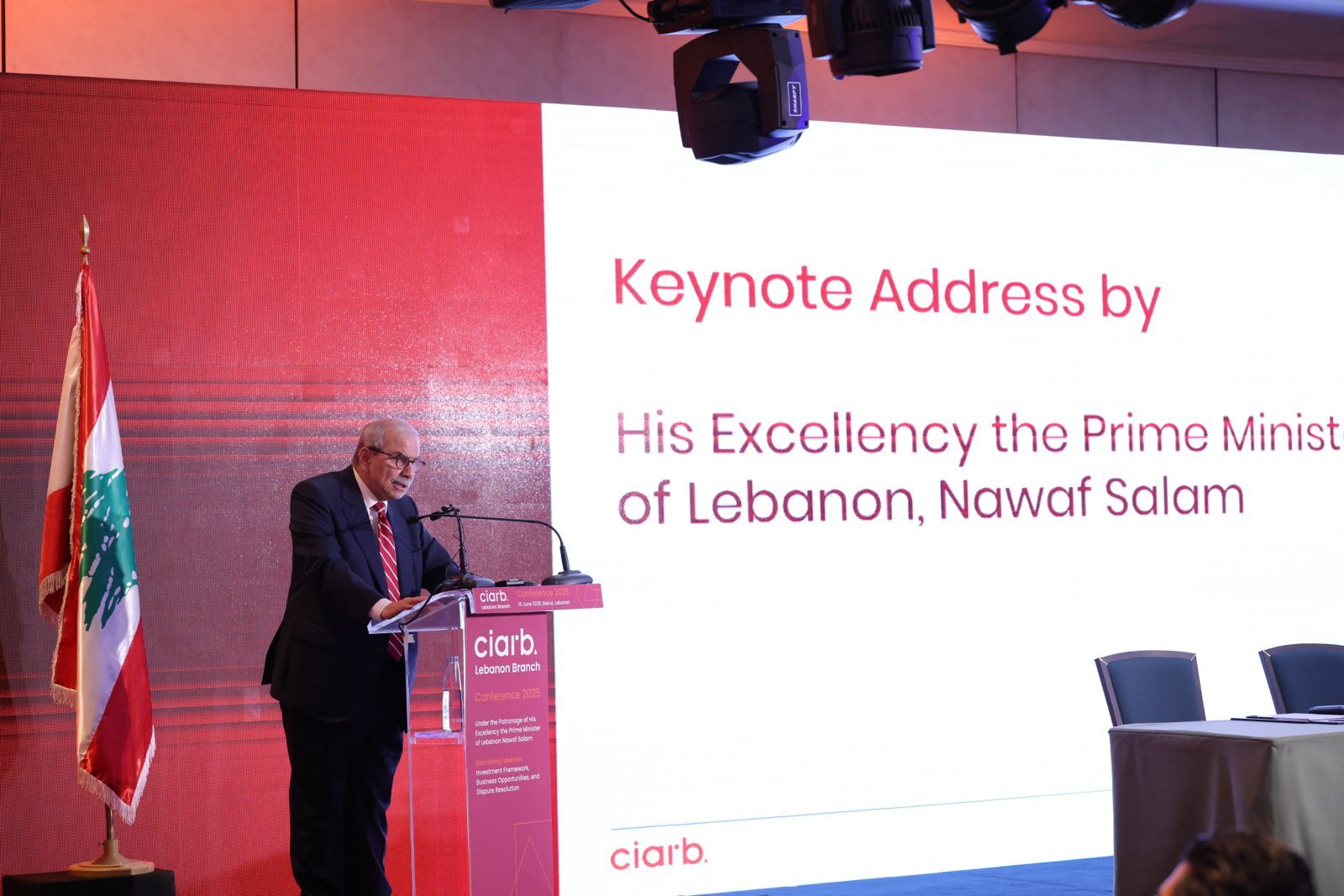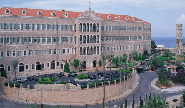
Prime Minister Nawaf Salam revealed that the government has successfully dismantled over 500 weapons depots in southern Lebanon, a significant step toward stabilizing the region. Additionally, security enhancements have been made at Beirut’s international airport to ensure safer conditions for citizens and international visitors alike.
At the conference titled “Rebuilding Lebanon: Investment Frameworks, Business Prospects, and Dispute Resolution,” on Monday, Salam highlighted key security and sovereignty measures as foundational to the country’s recovery.
On the diplomatic front, Salam pointed out that Lebanon is actively working through international channels to halt Israeli attacks and to secure the withdrawal of Israeli forces from five disputed points along the border. These efforts are part of a broader strategy to restore national sovereignty, which Salam described as essential for rebuilding trust with the international community and encouraging the return of investors to Lebanon.
The prime minister also stressed the importance of an independent judiciary, calling it a cornerstone for positioning Lebanon as a regional hub for arbitration and for reshaping its role in conflict resolution.
Salam underlined that despite the major challenges facing the country, rebuilding the state remains the government’s top priority.
At the donor roundtable chaired by Salam at the Grand Serail, Lebanon presented the Emergency Assistance Project (LEAP), a $1 billion plan for urgent rehabilitation of infrastructure damaged by recent Israeli aggression. Recovery needs are estimated at $12 billion, with Nabatieh, South Lebanon, and Mount Lebanon hardest hit. The war caused a 7.1% GDP contraction in 2024, worsening an economic decline nearing 40% since 2020.
LEAP is designed to transition Lebanon from emergency response to sustainable reconstruction, relying on transparent, region-based investments coordinated by the Council for Development and Reconstruction (CDR), which has received expanded powers to expedite projects.
Finance Minister Yassin Jaber highlighted ongoing reforms: sound fiscal management, a 2026 budget aligned with IMF recommendations, tax base expansion, key banking laws, and strengthened institutions. Lebanon seeks a new IMF program with expert agreement by Fall 2025 and collaborates with the World Bank on investments exceeding $1 billion.
The World Bank supports LEAP with a $250 million loan, contingent on government reforms and project readiness. This coordinated international effort aims to restore essential services, social cohesion, and investor confidence as Lebanon rebuilds.



Comments